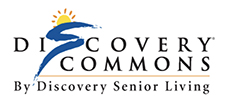Self-management refers to the ability of individuals, including those in their golden years with dementia, to manage the symptoms, treatment and lifestyle changes associated with a chronic condition. It empowers individuals by equipping them with the tools and strategies needed to control their symptoms and improve their quality of life. This approach is especially critical for seniors with dementia as it can lead to a more satisfying, dignified and less stressful daily experience.
The Importance of Self-Management
For those in their golden years with dementia, self-management is more than just taking medication. It involves managing changes in memory, behavior and physical abilities. The benefits of effective self-management are substantial, leading to improved well-being, reduced emergency care and a more stable environment. By focusing on what individuals can do and providing them with control over their condition, self-management helps maintain independence and a sense of personal agency.
Key Strategies for Enhancing Self-Management
Achieving effective self-management involves several key strategies that can be tailored to fit the individual needs of your loved ones. These include:
Regular Assessment and Personalized Care Plans
Consistent monitoring of health and cognitive status ensures that care adjustments are made as needed. Personalized care plans that adapt to the progressing nature of dementia are crucial. They should focus on enhancing comfort, managing symptoms and supporting daily functions in a respectful and compassionate way.
Structured Daily Routines
Maintaining a regular schedule helps minimize confusion and anxiety for those with memory challenges. Daily routines that incorporate both physical and cognitive activities are beneficial. These activities could include walking, light gardening, puzzles and reminiscing about old times, which can help sustain mental and physical agility.
Clear Communication
Effective communication strategies are essential. This includes using simple, clear sentences and maintaining eye contact. Visual aids such as photographs and symbols can also be extremely helpful in enhancing understanding and engagement.
Safe and Supportive Environment
Adjusting the living environment to reduce risks and support independence is crucial. This might involve installing safety rails, using automatic lighting and removing tripping hazards. Creating a supportive atmosphere that respects the dignity of your family members encourages participation in self-management by making them feel secure and valued.
Technology and Tools for Independence
Technological aids can play a significant role in supporting daily life for those with dementia. Automated reminders for medication, appointments, senior living amenities and social engagements can help manage cognitive impairments. GPS trackers and sensor systems can also ensure safety without compromising independence.
Education and Support for Caregivers
Equipping caregivers with the knowledge and skills to support self-management practices is vital. This includes training in dementia care principles, communication techniques and stress management strategies. Support groups and resources can also provide necessary emotional support and practical advice.
Why Self-Management Matters in Retirement Settings
In retirement community settings, self-management practices are integrated into the daily care and activities provided. This approach not only respects the individual needs and preferences of your beloved family members but also promotes a collaborative atmosphere where they can thrive despite the challenges of dementia. By fostering an environment that encourages self-management, we help preserve the dignity and independence of those in their golden years.
If you are exploring senior living options that prioritize dignified, whether it is Assisted Living or Memory Care, respectful care and self-management for dementia, consider joining our community. We are committed to providing a supportive environment where your beloved family members can enjoy the quality of life and independence.
Contact us today to learn more about how we integrate self-management practices into our daily routines and care plans.







